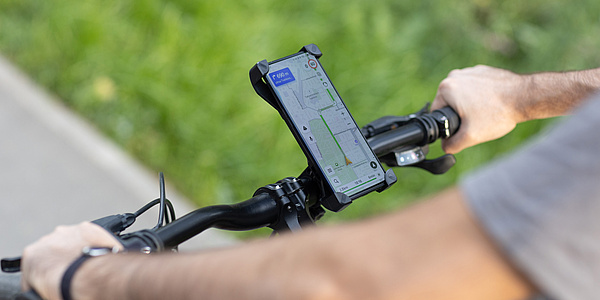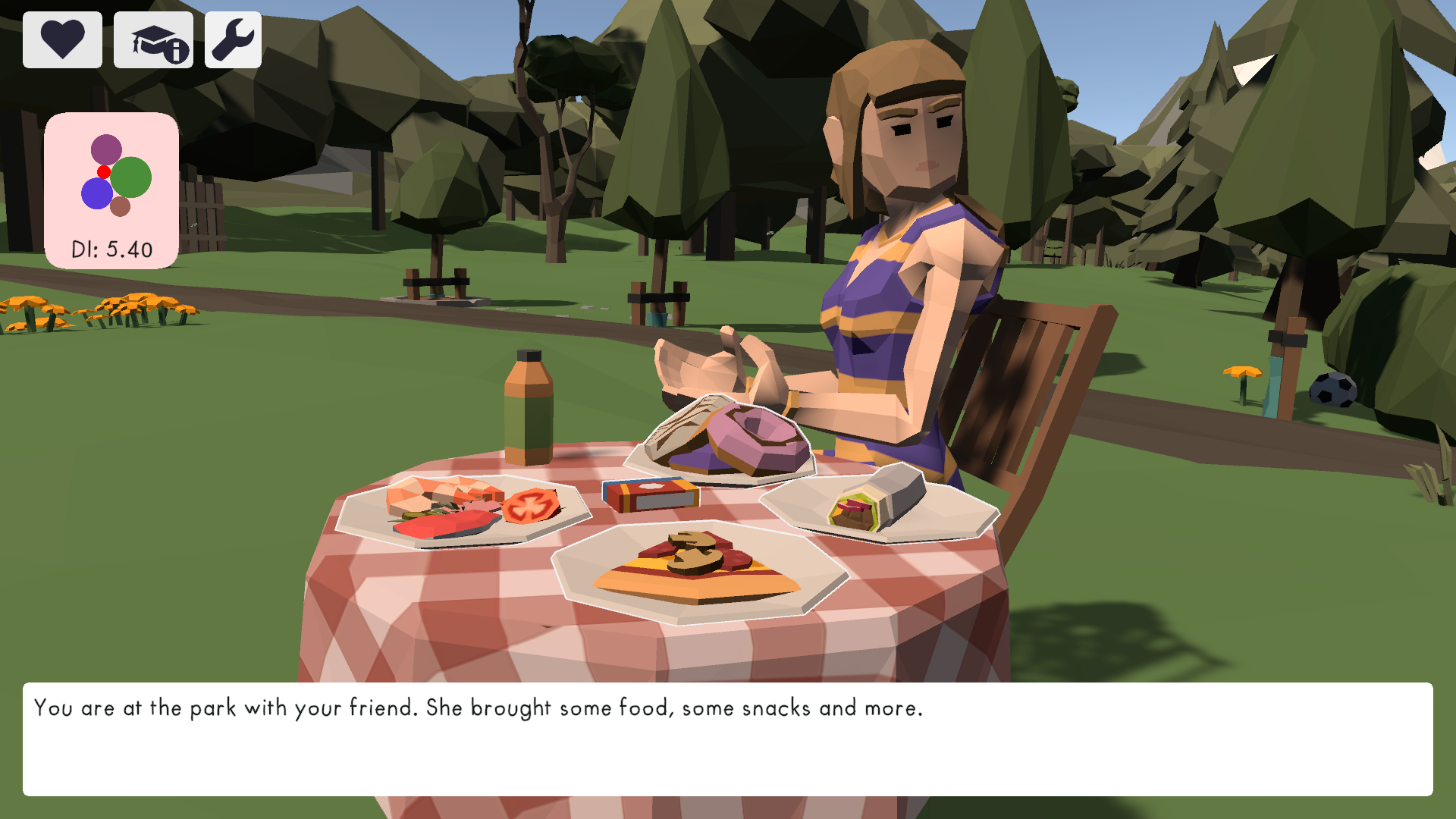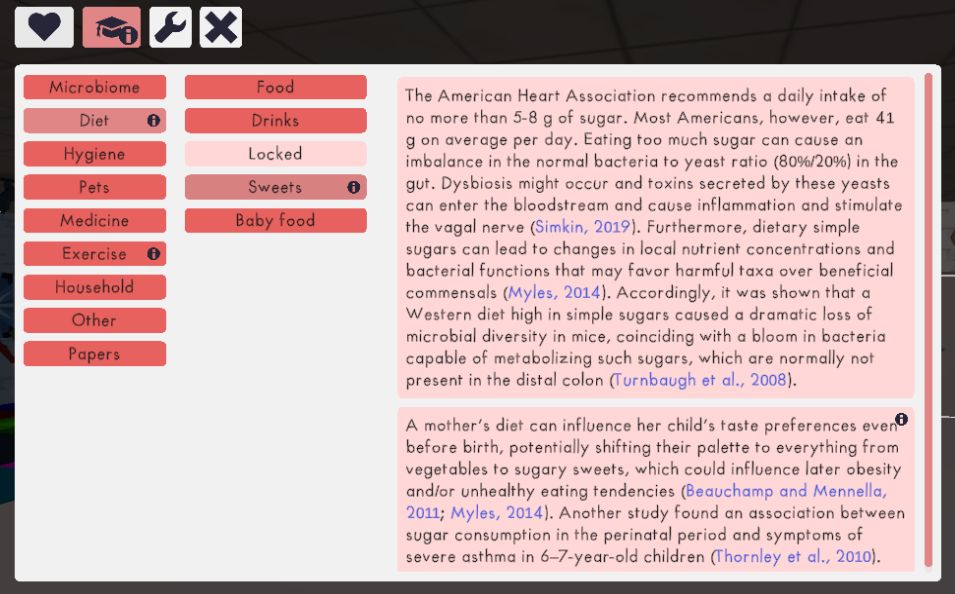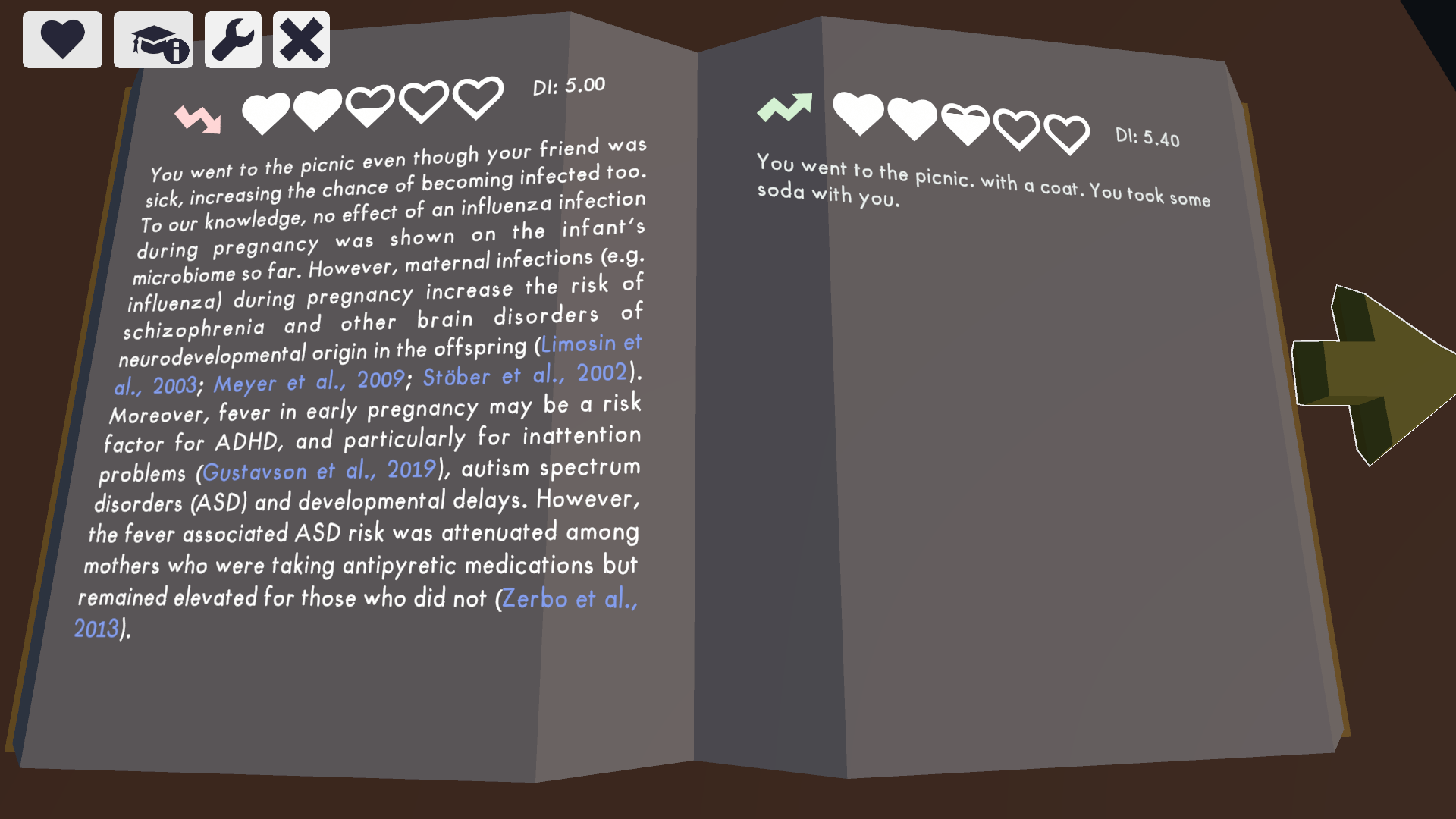‘Tiny Biome Tales’: Playing a Game to Understand the Human Microbiome
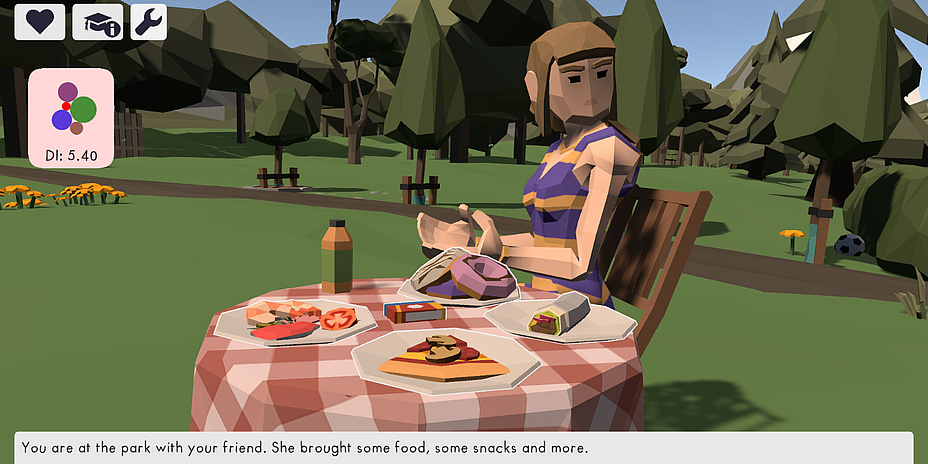
Countless microorganisms live on and in the human body - including viruses, bacteria and fungi. Together, they weigh two kilograms and are essential for our health: they support our immune system, promote digestion, protect our skin to name but a few examples. Researchers from Game Lab Graz and the Institute of Environmental Biotechnology at Graz University of Technology (TU Graz) have developed an interactive computer game that explains how important the microbiome is for our health and how it is influenced by our lifestyle and everyday decisions: How does the microbiome change when children play in a sandbox, when we eat vegetables, drink alcohol, get a pet or kiss someone? The game initially illustrates the positive or negative effects in simple graphics and shart texts. However, all information is also provided with links to scientific publications. The game Tiny Biome Tales is free of charge and can be played via the Game Lab Graz server.
All information in the game is based on scientific publications
The video game is part of the online course Microbiome & Health, which was developed by Gabriele Berg, Head of the Institute of Environmental Biotechnology, and her team and was created to provide a comprehensive overview of the human microbiome. “We developed the game to give people access to information about the human microbiome in a fun way, especially about the influence of lifestyle from pregnancy through childhood and into adulthood,” says Matthias Schweitzer from the Institute of Environmental Biotechnology. He meticulously analysed scientific publications on the human microbiome to find evidence for the consequences of any decision that players make in the game - a total of 330 sources that are constantly being expanded. “It was very important to us not to convey any false or unsubstantiated information in the game,” emphasises Gabriele Berg, who originally developed the idea for the game together with Johanna Pirker from Game Lab Graz.
Making science tangible
Florian Marcher and Maximilian Wlasak were responsible for developing the computer game as part of their bachelor theses. They transformed the decision-making options, explanatory texts and references into a 3D role-playing game in which players go through different stages of life - from birth to childhood and adulthood, until the game finally ends with the choice of a retirement home. “We wanted to use the game to make the science as tangible and accessible as possible,” says Maximilian Wlasak. “And we were interested in whether the game is actually an effective learning tool.” A pilot study involving 65 people revealed that people who had played the game performed significantly better when answering a catalogue of questions about the microbiome than a comparison group that had not yet played the game. The results of the study will be published in the scientific journal Microbial Biotechnology and are already available as a preprint.
Making your own decisions in order to learn from them
Johanna Pirker, Head of Game Lab Graz, explains why computer games are a good option for learning: “In contrast to a film or book, you can act and make decisions in a computer game. Every decision has consequences - good or bad - and you learn from them. Only a video game can offer that.”
This research is anchored in the Fields of Expertise “Human & Biotechnology” and “Information, Communication & Computing”, two strategic foci of TU Graz.
Would you like to receive the latest stories, news, research stories, interviews or blog posts from TU Graz directly on your smartphone or in your email inbox? Subscribe to the TU Graz Telegram newsletter free of charge.
Kontakt
Johanna PIRKER
Ass.Prof. Priv.-Doz. Dipl.-Ing. Dr.techn. BSc
TU Graz | Institute of Interactive Systems and Data Science
Game Lab Graz
Phone: +43 316 873 5625
johanna.pirker@tugraz.at
Matthias SCHWEITZER
Dipl.-Ing. BSc
TU Graz | Institute of Environmental Biotechnology
Phone: +43 316 873 8812
matthias.schweitzer@tugraz.at
